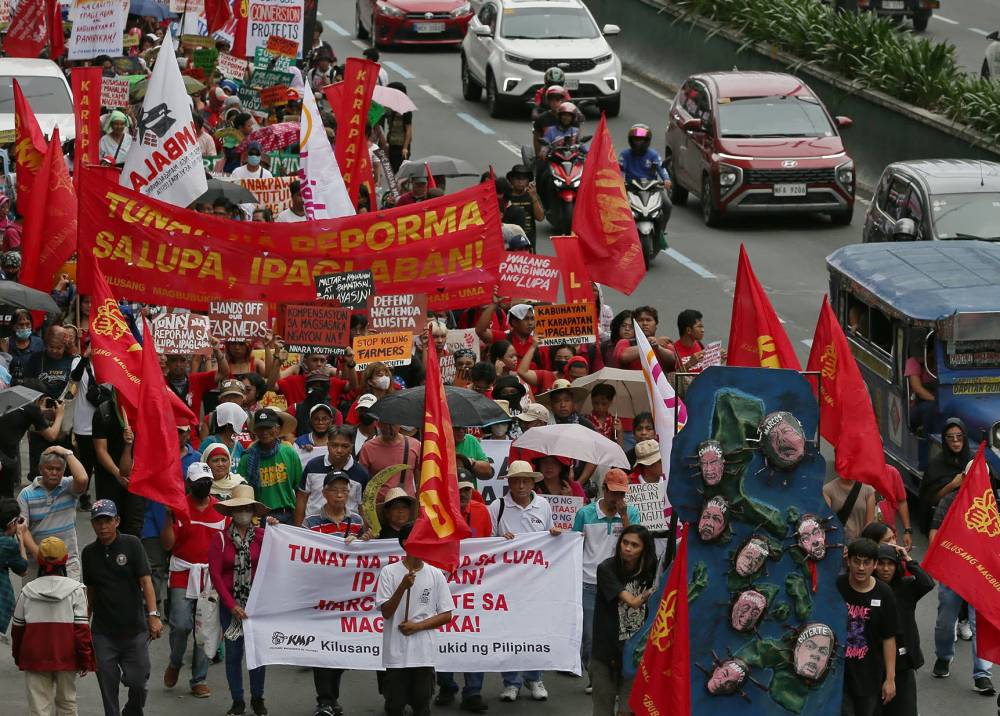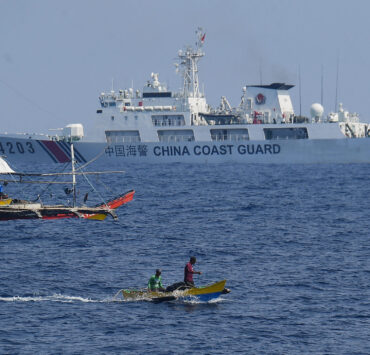Farmers’ group slams DAR over farmland distribution to non-tillers, OFWs

A farmer’s group has called out the Department of Agrarian Reform (DAR) for the “glaring irregularities” in the agency’s implementation of the Comprehensive Agrarian Reform Program (CARP) based on a report by the Commission on Audit (COA).
The Kilusang Magbubukid ng Pilipinas (KMP) said in a statement that DAR “perpetuated landlessness and agrarian injustices” after it granted land to ineligible beneficiaries and distributed parcels exceeding the limit prescribed under the Comprehensive Agrarian Reform Law or Republic Act No. 6657.
The KMP’s statement was based on the findings of the COA’s annual audit report that was released last Dec. 1. According to the report, 235 agrarian reform beneficiaries (ARBs) from 18 provinces who received a certificate of land ownership award (CLOA) “did not meet the eligibility requirement under Section 22” of RA 6657.
Moreover, “117 ARBs in 16 provinces received land in excess of the established three-hectare limit or a total of 72.5025 hectares of excess land,” which violated Section 23 of the same law. These questionable ARBs did not include the provinces Davao Oriental, Davao City and Davao de Oro, whose data on excess land were not specified.
For KMP, the COA report has “exposed glaring irregularities in DAR’s implementation of CARP,” pointing out that “these actions deprived legitimate farmer-beneficiaries of access to land.”
Given its observations, the COA directed the provincial offices of DAR to reallocate the land that was given to unqualified beneficiaries toward other landless tenants or farmers. It also told DAR to monitor the status and performance of each ARB in order to identify any possible misuse of the land or noncompliance with the agreements or conditions that were agreed upon during the awarding and transfer of land ownership.
Because of the failure of provincial offices to properly screen beneficiaries, KMP said regions such as Zamboanga Sibugay had minors listed as beneficiaries and awarded lands were sold or converted.
Nontillers, OFWs as beneficiaries
In provinces such as Ilocos Sur and Pangasinan, nontillers and overseas Filipino workers were given agricultural land. At the same time, some beneficiaries in Iloilo and Leyte remained “unaware” of the location of their awarded land, KMP said.
Moreover, the overdistribution of land has also led to conflicting claims among beneficiaries, “exacerbating the already volatile state of land disputes across the country.”
“Farmers across various regions have reported cases of harassment, land grabbing and displacement, with DAR failing to resolve these issues in favor of rightful beneficiaries,” the group said.
“These findings are a testament to the systemic failures of DAR and the bogus CARP,” said KMP chair Danilo Ramos.
“Decades of so-called agrarian reform have done nothing to dismantle land monopolies or resolve land disputes. Instead, CARP has enabled corruption and inefficiency, betraying the agrarian reform beneficiaries (ARBs) it claims to serve,” he said.
KMP also criticized DAR for failing to meet its land acquisition and distribution targets. For instance, in 2022, only 33 percent of the target lands for Certificate of Land Ownership Award (CLOA) registration were achieved despite the agency utilizing almost 98 percent of its budget.
“Many lands under collective CLOAs remain undistributed for decades, depriving aging farmers of rightful ownership and perpetuating inequality,” the group said.
KMP reiterated its call for a “genuine agrarian reform program” which the group said “prioritizes free land distribution to farmers and the dismantling of land monopolies.”
The group also demanded that a congressional investigation be made regarding the DAR’s land distribution and the agency’s implementation of its Support to Parcelization of Lands for Individual Titling or SPLIT program.

















